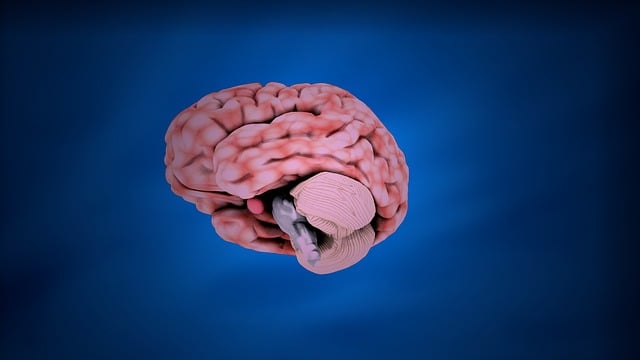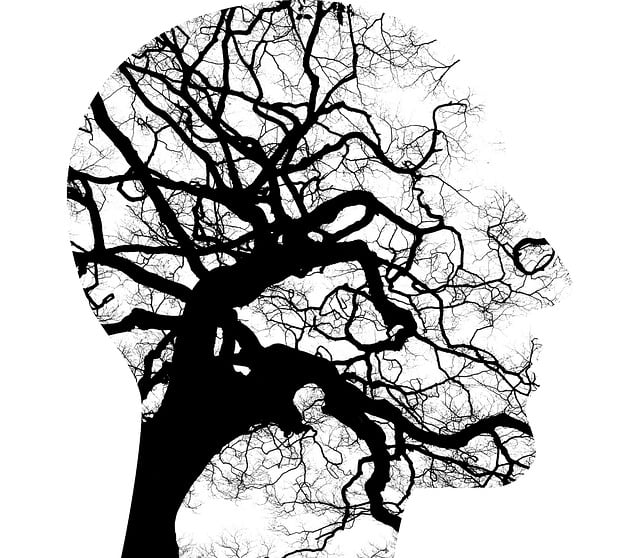Littleton Chronic Pain Therapy introduces comprehensive Mental Wellness Coaching Programs to address the growing mental health crisis. Integrating trauma support, these programs combine coaching with evidence-based pain management techniques, such as CBT and stress management, to improve clients' emotional well-being and resilience. Digital tools enable remote access, making coaching more accessible globally. Success is measured through stress reduction, chronic pain symptom alleviation, and continuous improvement strategies tailored to individual needs.
In today’s fast-paced world, mental wellness coaching programs are emerging as a vital tool for addressing rising mental health challenges. This article explores the development of such programs with a specific focus on Littleton Chronic Pain Therapy. We delve into understanding the growing need, designing effective strategies, integrating evidence-based practices, leveraging technology for remote support, and measuring success. By examining these aspects, we aim to illuminate innovative approaches to enhancing mental wellness, particularly in managing chronic pain.
- Understanding the Need for Mental Wellness Coaching Programs
- Designing Effective Littleton Chronic Pain Therapy Programs
- Integrating Evidence-Based Practices into Coaching Strategies
- The Role of Technology in Delivering Remote Mental Wellness Support
- Measuring Success and Continuous Improvement in Coaching Interventions
Understanding the Need for Mental Wellness Coaching Programs

In today’s fast-paced and often stressful world, prioritizing mental wellness is more crucial than ever. The rise in chronic pain and related mental health issues, such as anxiety and depression, highlights the need for accessible and effective support systems. Littleton Chronic Pain Therapy has recognized this growing demand and taken a proactive step towards addressing these challenges by developing Mental Wellness Coaching Programs. These programs aim to empower individuals with tools to manage their mental health, especially in navigating the complexities of chronic pain.
The integration of Trauma Support Services within these coaching programs is a game-changer for many. By offering a safe space to process and heal from past traumas, these services enhance overall well-being. Additionally, fostering positive thinking and resilience is at the core of the coaching curriculum, enabling individuals to cultivate a more optimistic mindset, which is essential for managing chronic pain and maintaining mental balance.
Designing Effective Littleton Chronic Pain Therapy Programs

Designing effective Littleton Chronic Pain Therapy programs requires a holistic approach that integrates mental wellness coaching with evidence-based pain management techniques. Mental wellness journaling exercises and guidance can play a pivotal role in this process, helping individuals understand and cope with the emotional aspects of chronic pain. By fostering mental health awareness, these programs empower participants to develop resilience and improve their overall quality of life.
Through tailored guidance, coaches assist clients in identifying negative thought patterns and replacing them with positive affirmations, thereby enhancing coping mechanisms. Combining this with conventional treatments like physical therapy and medication can lead to more comprehensive and successful outcomes for individuals navigating Littleton Chronic Pain Therapy. This integrated approach not only alleviates physical symptoms but also strengthens mental wellness, ensuring a more fulfilling recovery journey.
Integrating Evidence-Based Practices into Coaching Strategies

Integrating evidence-based practices into coaching strategies is paramount for effective mental wellness programs. Techniques such as cognitive-behavioral therapy (CBT) have been extensively studied and proven to be powerful tools in managing various mental health issues, including chronic pain. Programs that incorporate CBT components can significantly enhance clients’ coping mechanisms, allowing them to navigate challenges with increased resilience. For instance, Littleton Chronic Pain Therapy has successfully implemented CBT strategies to help individuals manage their pain more effectively, thereby improving overall quality of life.
Additionally, crisis intervention guidance and stress management techniques are integral parts of a holistic coaching approach. High-pressure situations often call for swift and effective interventions, and coaches equipped with these skills can offer immediate support. Self-esteem improvement is another facet that contributes to an individual’s mental wellness; integrating exercises that foster positive self-image can empower clients to face personal struggles head-on. Through a balanced combination of evidence-based practices, coaching programs can create a nurturing environment conducive to lasting mental well-being.
The Role of Technology in Delivering Remote Mental Wellness Support

The digital age has revolutionized mental wellness coaching, making support more accessible than ever before, especially for individuals dealing with chronic pain like those seeking Littleton Chronic Pain Therapy. Online platforms and remote communication tools enable coaches to deliver effective guidance to clients worldwide. Video conferencing allows for face-to-face interactions, fostering a sense of connection, which is vital for building trust and understanding. This technology also facilitates the use of interactive exercises, such as mental wellness journaling, where clients can document their thoughts and emotions, enhancing self-awareness and emotional regulation skills.
Through mobile apps and dedicated software, coaches can offer personalized programs tailored to individual needs. These tools often include features like mood tracking, mindfulness exercises, and educational resources, promoting client engagement between sessions. With the right technology integration, remote coaching becomes a powerful way to improve mental wellness, offering flexibility and convenience while still providing expert support for those navigating challenges like chronic pain.
Measuring Success and Continuous Improvement in Coaching Interventions

Measuring success in mental wellness coaching programs is a multifaceted process that goes beyond simple client satisfaction surveys. It involves tracking tangible improvements in clients’ lives, such as reductions in stress levels and chronic pain symptoms, as seen in cases like Littleton Chronic Pain Therapy. By integrating data from various sources – including self-reported progress, clinical assessments, and qualitative feedback – coaches can gain a comprehensive view of each individual’s journey. This holistic approach ensures that interventions are effective and tailored to unique needs.
Continuous improvement relies on regularly analyzing these metrics and adjusting coaching strategies accordingly. Incorporating elements like Mental Health Policy Analysis and Advocacy, Confidence Boosting, and Compassion Cultivation Practices can enhance program effectiveness by addressing systemic barriers and fostering a supportive environment. Through iterative feedback loops and evidence-based practices, mental wellness coaching programs can evolve to better support clients’ long-term well-being.
Mental wellness coaching programs are a vital game-changer in addressing the growing need for effective chronic pain management. By integrating evidence-based practices, such as those employed in Littleton Chronic Pain Therapy, coaches can facilitate meaningful improvements in clients’ lives. The use of technology enables remote support, expanding access to care. Continuous measurement and improvement ensure these programs remain impactful and tailored to individual needs. As we navigate the digital landscape, these strategic interventions have the potential to revolutionize mental wellness support, fostering a healthier and more resilient society.














